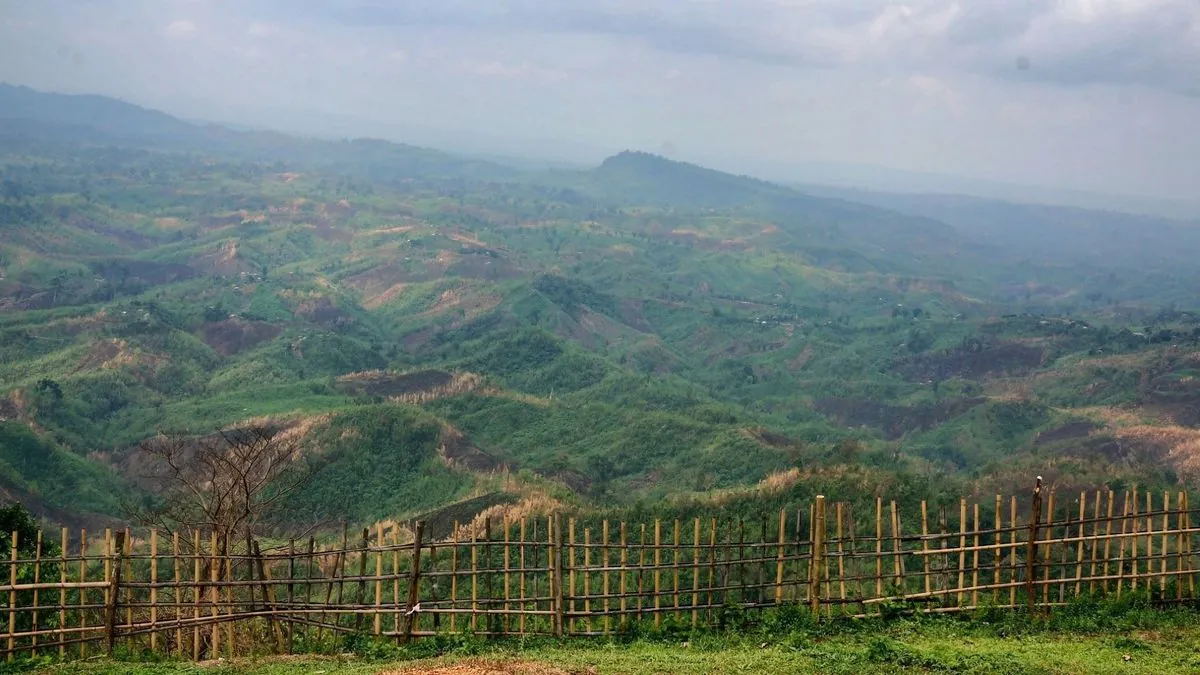In Bangladesh's Chittagong Hill Tracts (CHT), a region known for its diverse ethnic communities and complex history, recent violence has reignited long-standing tensions. The unrest, which began on September 18, 2024, has resulted in four fatalities and numerous injuries, primarily affecting ethnic minority groups.
The CHT, covering approximately 13,295 square kilometers, is home to at least 11 indigenous ethnic groups collectively known as Jumma people. This area, bordering Myanmar and the Indian states of Mizoram and Tripura, has been a hotspot of ethnic tensions for decades.
The recent turmoil was triggered by the lynching of a Bengali man, leading to retaliatory attacks against ethnic minority communities. Witnesses report that homes and businesses, predominantly belonging to Buddhist minorities, were targeted and set ablaze. In a disturbing turn of events, Buddhist temples were also attacked, and local mosque loudspeakers were allegedly used to incite violence.
In response to the escalating situation, student-led ethnic groups have initiated a 72-hour blockade of roads and waterways in the three hilly districts of Khagrachhari, Rangamati, and Bandarban. This action aims to demand justice for those affected by the violence and highlight the ongoing issues faced by indigenous communities in the region.
Local authorities have imposed Section 144, a curfew-like measure, in Khagrachhari and Rangamati to curb further violence. Ahsan Habib, deputy inspector general at Chittagong Range Police, stated, "A tense situation is prevailing... Police and security forces are jointly patrolling, hopefully, peace will be restored soon."
The interim government, led by Nobel Peace Prize laureate Mohammad Yunus, has expressed regret over the violence and instructed security forces to exercise maximum restraint while prioritizing residents' safety. Lt Gen (Retd) Jahangir Alam Chowdhury, Home Affairs Adviser, announced the formation of a high-level committee to investigate the incident.
This recent outbreak of violence is rooted in a complex historical context. In the 1980s, the government resettled thousands of landless Bengali families in the CHT, exacerbating tensions between new settlers and indigenous groups. The region has been militarized since the 1970s, with a significant army presence continuing to this day.
In 1997, a peace accord was signed between the government and the Shanti Bahini, a tribal guerrilla group, ending a 25-year insurgency that sought political autonomy for the region. However, the implementation of this accord has been a subject of ongoing debate and controversy.
The CHT region faces numerous challenges, including lower literacy rates compared to the national average and restricted tourism due to security concerns. Despite these issues, the area is rich in natural resources and biodiversity, home to several endangered species and significant hydroelectric potential.
As the situation unfolds, the international community watches closely, hoping for a peaceful resolution that addresses the underlying issues of ethnic representation and resource allocation in this diverse and complex region of Bangladesh.
